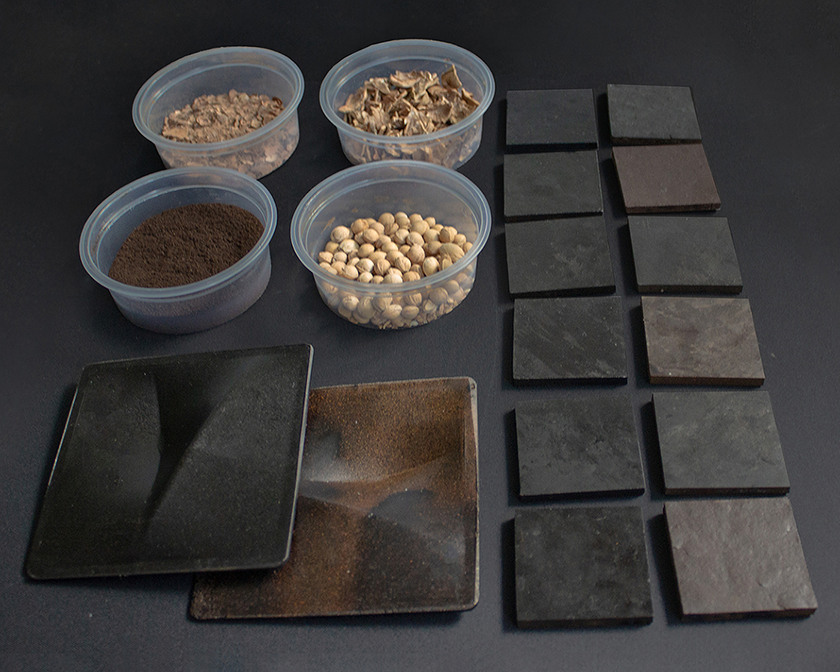Lara Neuhaus
Building Technology Graduation Studio
Bio-composites from Food-waste: Exploring the impact of waste sourced fillers from the food industry on the functional and mechanical characteristics of bio-composites for a possible application as a façade product
This thesis explores the potential of integrating waste-based fillers from the food industry into bio-composites for facade applications. The limited use of waste materials in building products, combined with a rising demand for sustainable materials, leaves the opportunity for new fully bio-based building materials from underutilised by-products.
The approach involves integrating organic waste, including pits, nut shells, spent coffee grounds and cacao-bean shells as granular filler into polymeric composites.
The methodology is divided into three phases: locating and evaluating useful food-waste sources, optimizing grain size and composition of the recipe, and assessing the best-performing filler combinations in facade panels in relation to sustainability and function.
The walnut shell composites, especially those with a 55% filler of mixed grain sizes, resulted in the most promising balance of mechanical properties and filler content. Overall results indicate a potential for much lower carbon impact compared to conventional facade materials and further research in this material class is anticipated.
